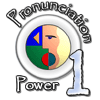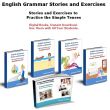Participle and Relative Clauses
Dear Ola, Please explain how to use participle instead of relative clauses? Also, could you tell me if the following sentences are correct or wrong? Does the second example give the past meaning?
Can you remember the methods "using" to solve this problem?
Can you remember the methods "used" to solve this problem?
Diana here: I changed "remind" to "remember" in your sentences. We use remind when something triggers a memory (and it is usually followed by a subject or person) and we use remember when it is the person directly recalling something.
Ex: I can't remember where my car keys are.
Could you remind me to put my keys in my bag when we get home?
Comments for Participle and Relative Clauses
|
||
|
||
Still looking? Search the site for exactly what you need using the site search box below.
Happy exploring!
Discover these Amazing ESL Materials!
 |
 |
 |
 |
 |
 |
 |
 |
 |
 |